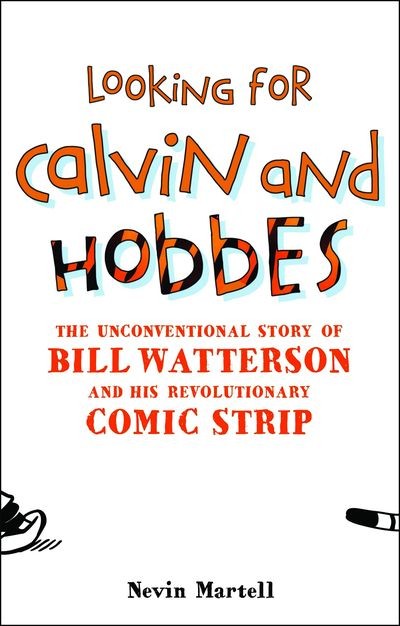It was the kind of opportunity everyone dreams of. Lee Salem, the president of Universal Press Syndicate, had just gotten a call from Steven Spielberg’s office. Spielberg wanted to talk to Universal Press Syndicate about making a movie out of its most successful property, “”Calvin and Hobbes.”” So Salem placed a call to Calvin’s creator, Bill Watterson, in Cleveland, Ohio. Salem remembers Watterson’s response with a mixture of awe and bemusement.
“”Why would I want to talk to Steven Spielberg?”” Watterson said. He refused to talk to the multimillionaire director — not once, but twice. He also turned down an offer from George Lucas. He had no desire to turn over his creation to anyone else, no matter who it was.
For anyone who loved “”Calvin and Hobbes,”” it’s a relief to have our sense of Watterson’s fiercely high principles confirmed by anecdotes like this. As some of us have always sensed, Calvin’s dad — the cranky, bike-riding Luddite who hated technology and told Calvin that their disastrous family vacations “”would build character”” — more often than not spoke for his creator, who even looked a bit like him.
But it’s not really a surprise. “”Calvin and Hobbes”” mattered to its millions of readers not merely because of the wacky hi-jinks or brilliant art, but because it felt real and powerful in a way that no other comic strip — save “”Peanuts,”” at its best — did. I still remember where I was when I learned that it was coming to an end. It felt like someone had just told me there wasn’t going to be any more pizza, ever.
When freelance music journalist Nevin Martell set out to write a book about his favorite comic strip, he had the vague idea that he might get to talk to Watterson. The first words he got from the cartoonist, through Watterson’s former editor, were also the last: “”Why is he doing this? Who cares?””
Unfortunately, “”Looking for Calvin and Hobbes”” doesn’t amount to much more than a rambling account of Martell’s efforts to dredge up enough information about “”Calvin and Hobbes”” to write a book about it. Although he knows where Watterson lives, he doesn’t want to knock on his door because that would be rude. Understandable. But without that kind of drama, or the insight that a Watterson interview might have provided, the book never comes to life.
The biggest coup Martell scores is an interview with Watterson’s mother, who reveals that the strip’s saddest story — Calvin’s encounter with a dying raccoon — was based on something that happened to Watterson when he was young. Martell also gets a lot of amusing quotes from people like David Sedaris (who tells him, on a postcard, that he doesn’t read the comics) and “”Bloom County”” creator Berke Breathed, who affectionately calls Watterson “”a certifiable whack-job.”” He also throws in a lot of information that any interested person could squeeze out of a Google search in an hour or two.
Still, it’s an agreeably breezy read. We learn that one syndicate turned the strip down because a focus group of “”a couple housewives in Connecticut said, ‘It’s okay, but we don’t get it,'”” in the bitter words of a former editor. We learn that Watterson loved the Beatles and that Calvin originally sported a moptop. We learn that a proposed movie never got off the ground because Watterson couldn’t imagine what Calvin’s voice would sound like.
Most touchingly, one fellow cartoonist speculates that the death of Watterson’s cat Sprite — the bouncy, playful real-life inspiration for Hobbes — might have influenced his decision to retire the strip.
We learn a lot about Watterson’s fierce battle with his syndicate over control of his characters. Unlike virtually every successful property, well, ever, “”Calvin and Hobbes”” was never merchandised. We never got a Hobbes doll or a Saturday morning series or even a desk calendar. Watterson felt that licensing would rip the heart and soul out of his characters. “”Who would believe in the innocence of a little kid and his tiger if they cashed in on their popularity to sell overpriced knickknacks that nobody needs?”” he wrote in a 1995 essay.
After years of futile negotiations, Universal Press Syndicate gave in and handed Watterson total control over his product. Considering the unimaginable millions they effectively surrendered, this has to rank as one of the most remarkable things a corporation has ever done. “”If Bill had just let us license ‘Calvin and Hobbes,’ you wouldn’t be talking to me today,”” Salem told Martell. “”You’d be tracking me down on the beach in the Bahamas.””
But by that time, it was too late. The shy and introspective Watterson, a fierce perfectionist — ””I’ve ripped up entire stories, weeks of material, that I didn’t think were good,”” he once wrote — was drained by the fight and beginning to fear he was repeating himself. By the end of 1994, he was ready to retire. With a few exceptions, that’s the last we’ve heard of him since.
Most of Watterson’s loyal readers, it’s safe to say, still hold out hope that he’ll come back someday, the way people used to hope that the Beatles would get back together. Martell doesn’t leave us with much hope. Watterson, who now spends his days painting, has never expressed any desire to draw any of Calvin’s further adventures.
Given the paucity of available information on his subject, Martell has probably written the best book possible. But it’s no substitute for flipping open one of your tattered old paperbacks and immersing yourself once more in the world Watterson created, a world that seems as timeless as any fictional world there is.









